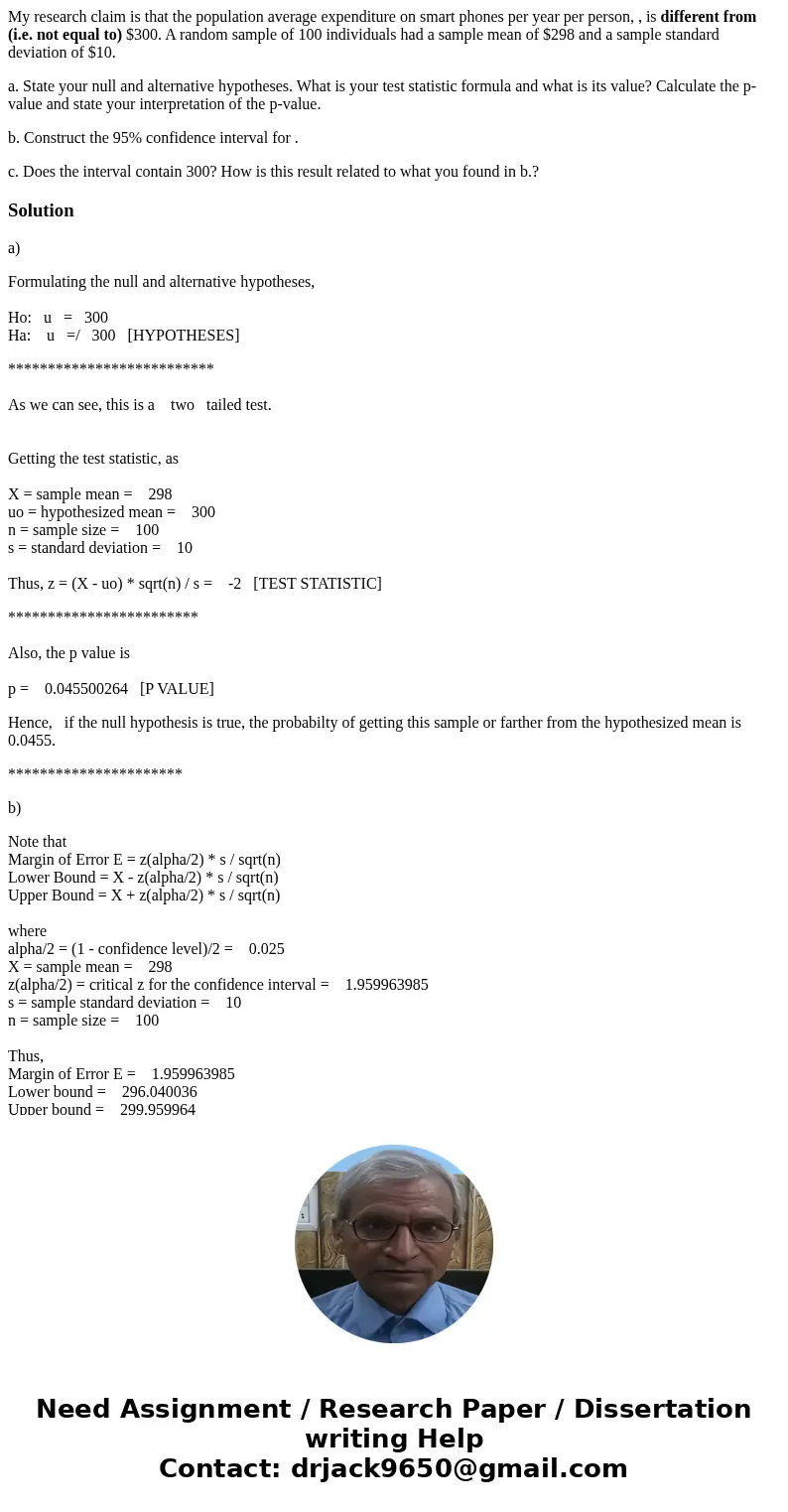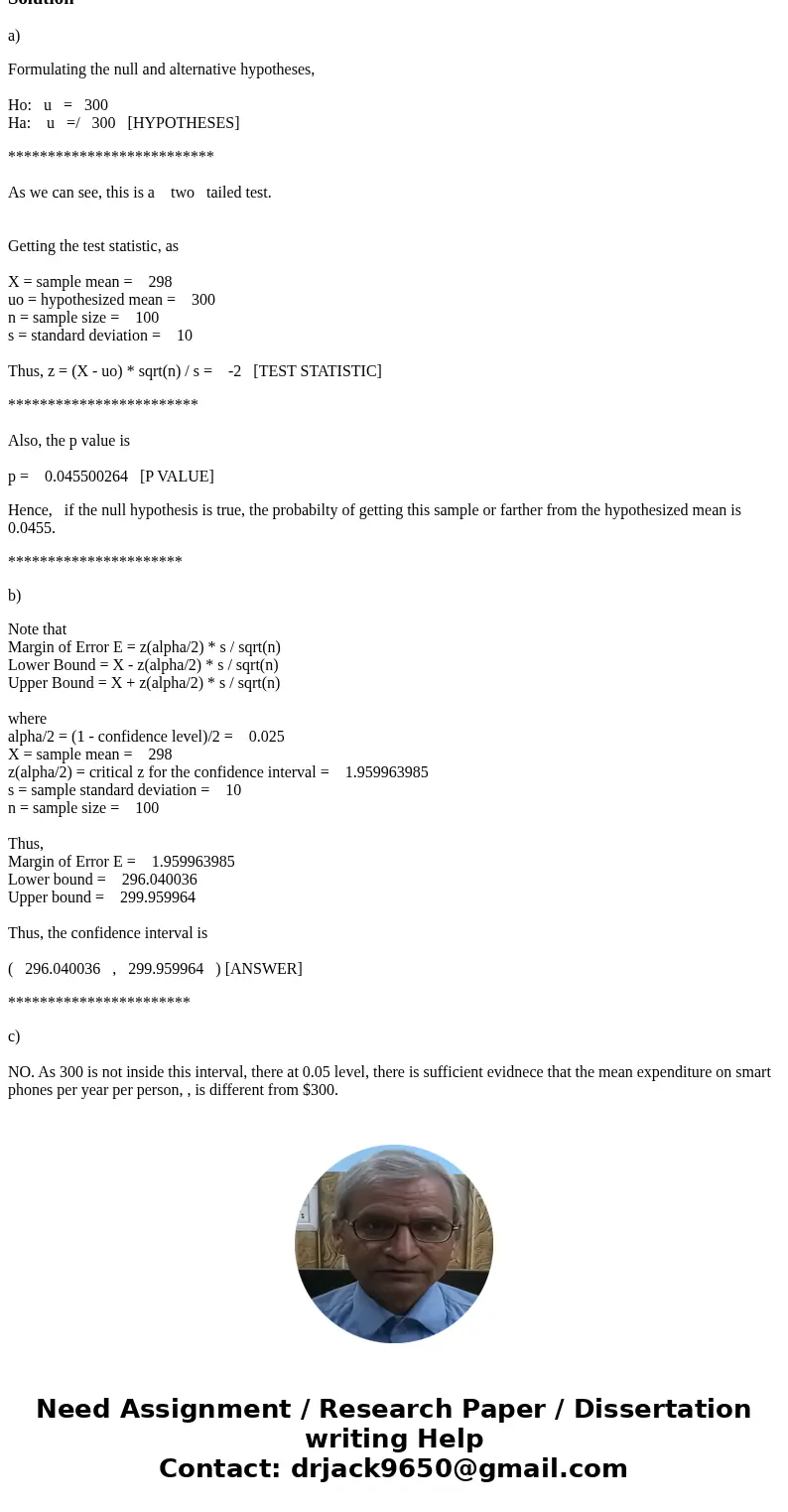My research claim is that the population average expenditure
My research claim is that the population average expenditure on smart phones per year per person, , is different from (i.e. not equal to) $300. A random sample of 100 individuals had a sample mean of $298 and a sample standard deviation of $10.
a. State your null and alternative hypotheses. What is your test statistic formula and what is its value? Calculate the p-value and state your interpretation of the p-value.
b. Construct the 95% confidence interval for .
c. Does the interval contain 300? How is this result related to what you found in b.?
Solution
a)
Formulating the null and alternative hypotheses,
Ho: u = 300
Ha: u =/ 300 [HYPOTHESES]
**************************
As we can see, this is a two tailed test.
Getting the test statistic, as
X = sample mean = 298
uo = hypothesized mean = 300
n = sample size = 100
s = standard deviation = 10
Thus, z = (X - uo) * sqrt(n) / s = -2 [TEST STATISTIC]
************************
Also, the p value is
p = 0.045500264 [P VALUE]
Hence, if the null hypothesis is true, the probabilty of getting this sample or farther from the hypothesized mean is 0.0455.
**********************
b)
Note that
Margin of Error E = z(alpha/2) * s / sqrt(n)
Lower Bound = X - z(alpha/2) * s / sqrt(n)
Upper Bound = X + z(alpha/2) * s / sqrt(n)
where
alpha/2 = (1 - confidence level)/2 = 0.025
X = sample mean = 298
z(alpha/2) = critical z for the confidence interval = 1.959963985
s = sample standard deviation = 10
n = sample size = 100
Thus,
Margin of Error E = 1.959963985
Lower bound = 296.040036
Upper bound = 299.959964
Thus, the confidence interval is
( 296.040036 , 299.959964 ) [ANSWER]
***********************
c)
NO. As 300 is not inside this interval, there at 0.05 level, there is sufficient evidnece that the mean expenditure on smart phones per year per person, , is different from $300.


 Homework Sourse
Homework Sourse